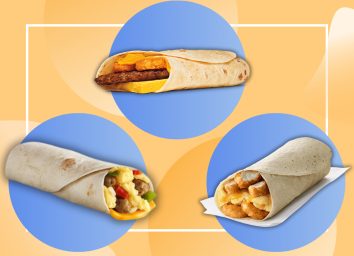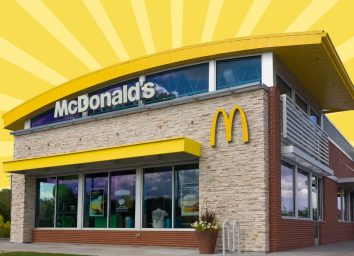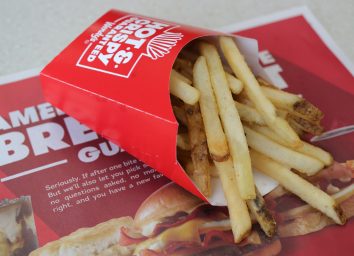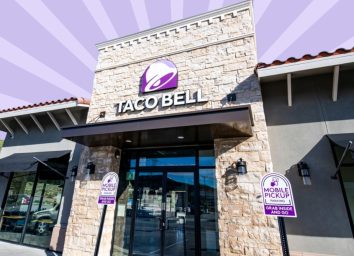10 Restaurant Secrets Waiters Won't Tell You
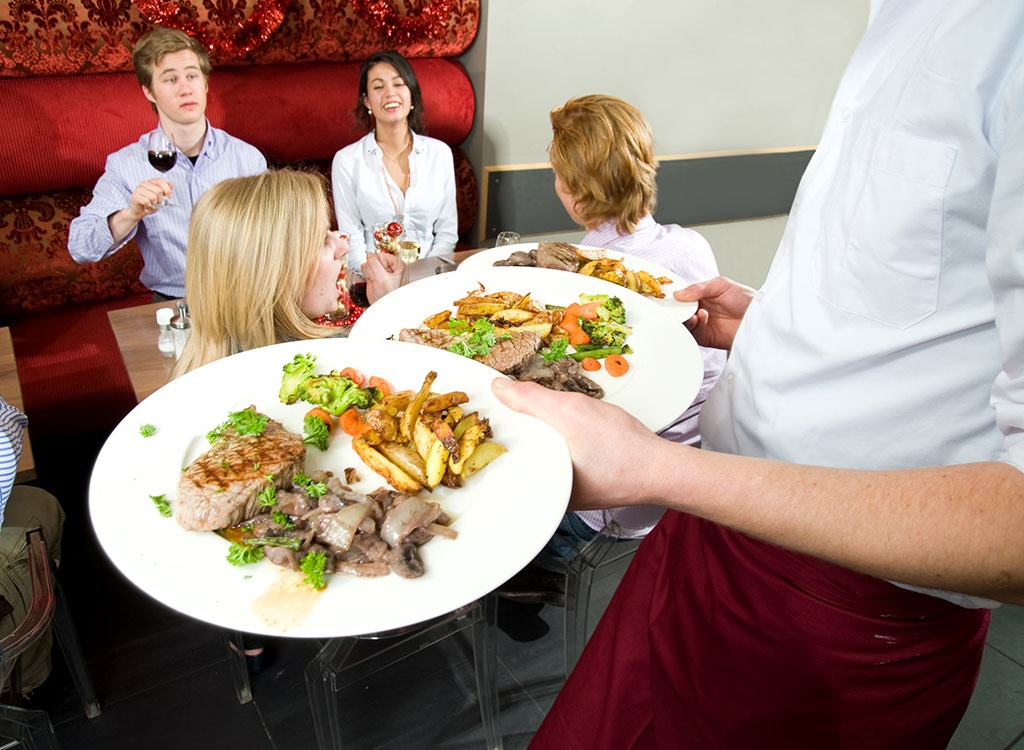
Congratulations.
You've just taken back control of your weight, your health, your wallet, and even your life. Wait—you don't remember giving up control of those things? In fact, if you're like most Americans, you probably signed that contract yesterday. And the day before. And probably the day before that. And if you're not careful, you might just sign it away tomorrow, as well.
You see, the last time a waitress handed you a menu, she might as well have been handing you a contract that says "I give total control of my body to Olive Garden/Burger King/Woody's Sports Bar/Al's Greasorama." Because once you blindly trust a food service establishment to determine what goes into your body, you've lost control. That's why our researchers at Eat This, Not That! Put together this list of 10 Restaurant Secrets Waiters Won't Tell You. Read on to strategize your next order, and click here to find out What Waiters Say They Hate About You!
The Bran Muffin is Just Cake
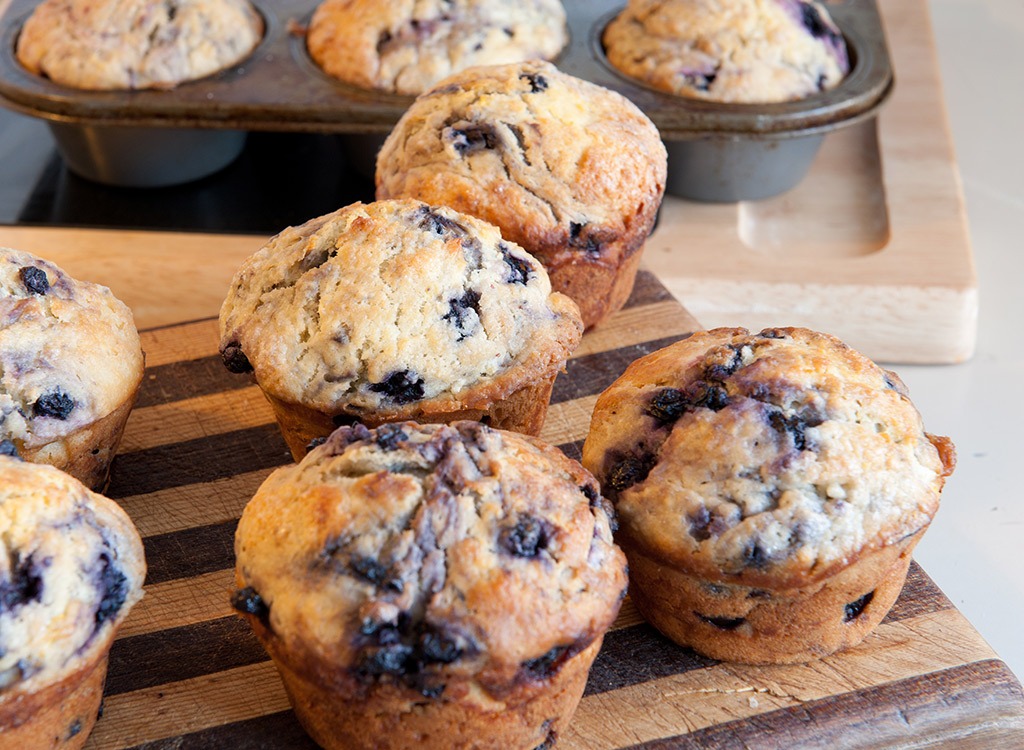
Putting a fancy name on a pastry is like putting lipstick on a crocodile. No matter how you dress it up, it still bites. A bran muffin might come with a couple grams of fiber, but that's a small pittance for a breakfast that can easily eclipse 400 calories— especially considering that the bulk of those calories comes from the same sugars and starches that make up everything else in the pastry case.
"Supersized" Isn't a Bargain
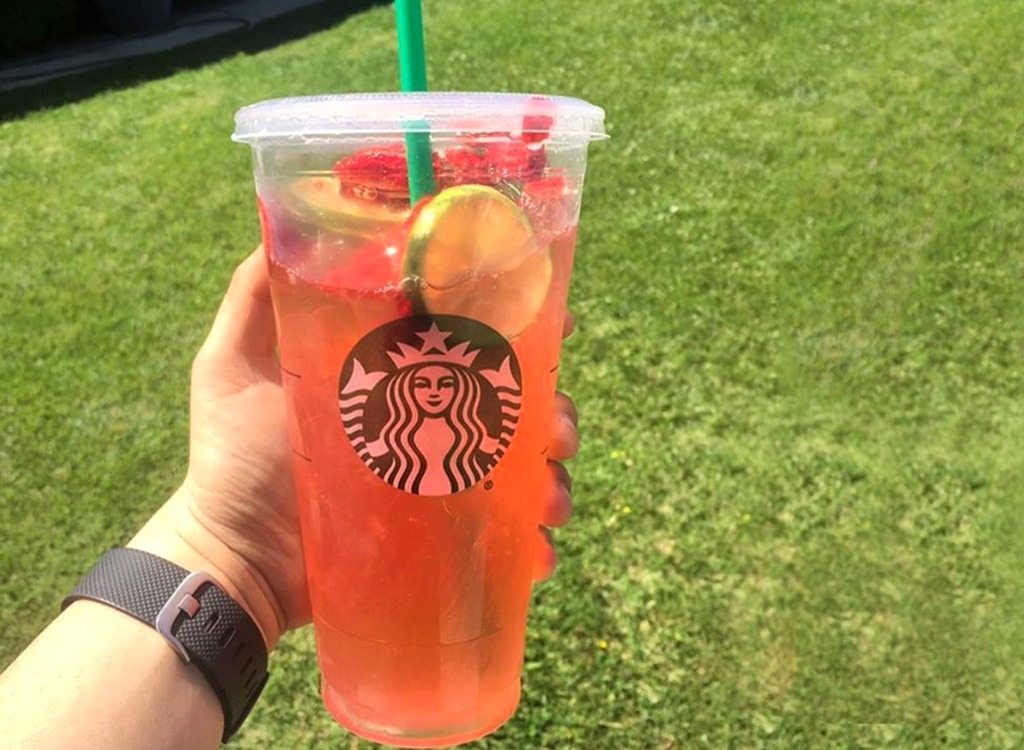
Sure, it feels like you're getting a bargain because you're getting proportionately more food for proportionately less money. But a "value meal" is only a value for two sets of people: the corporations that make the food and the corporations that make liposuction machines and heart stents. Because food is so inexpensive for manufacturers to produce on a large scale, your average fast-food emporium makes a hefty profit whenever you supersize your meal—even though you're getting an average of 73 percent more calories for only 17 percent more money. But as we pointed out in the introduction to this book, you're not actually buying more food. You're buying more calories. And that's not something you want more of. (If we were really smart, fast-food shops would be charging us more for the smaller portions!) For more rapid weight loss tips, check out our special report: 14 Ways to Lose Your Belly in 14 Days.
The Waiter is a Salesperson
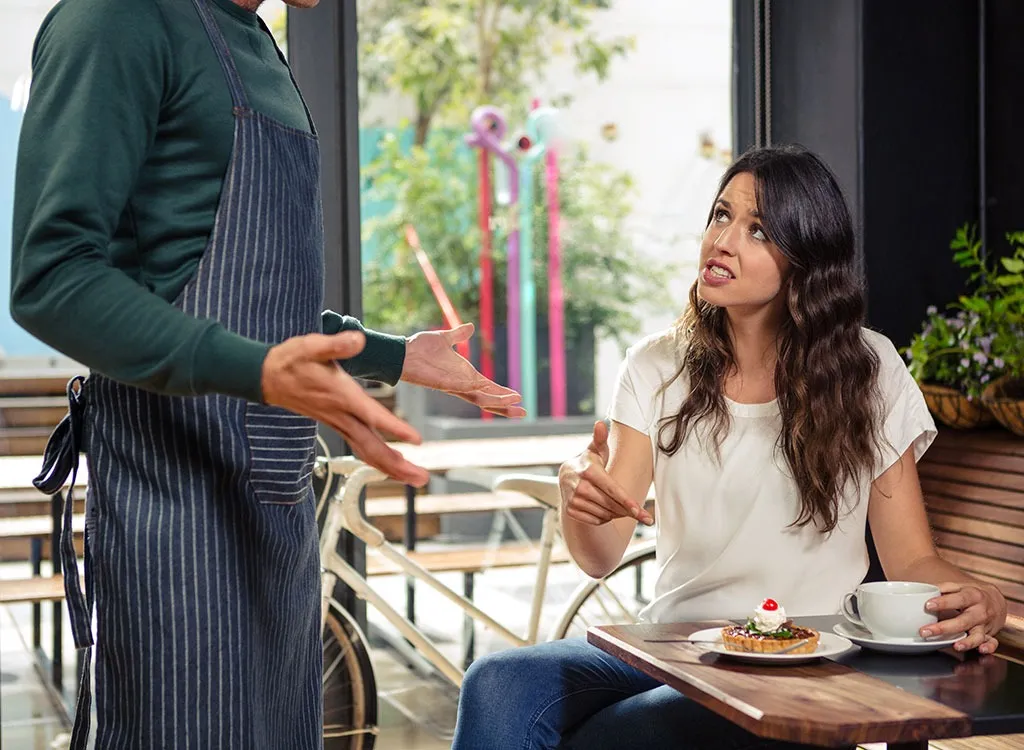
A 2005 study published in the Journal of Retailing and Consumer Services found that you're more likely to order a side dish when the server verbally prompts you. ("Do you want fries with that?") Restaurants know this, and now you know it, too. When the waiter makes a suggestion, remember his job is not to make you happy. His job is to extract money from your wallet and insert fat in its place.
They Want You to "Feel" Special
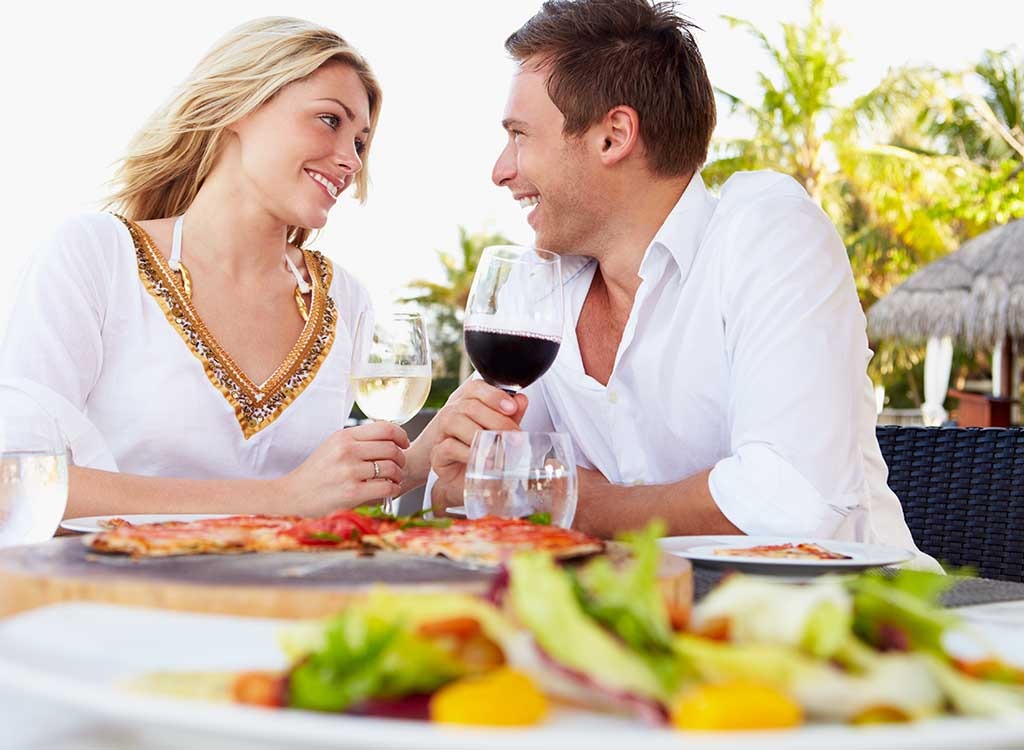
You eat out all the time. A study in the International Food Research Journal found that people are less likely to make healthy restaurant choices when they feel that they're dining out for a "special occasion." Dining out used to be special. But before you head out to your next meal, really take stock of how many times you've eaten out this week. If you're eating every meal at home and dining out truly is a once-a-week splurge, then don't worry about it so much. But if you're like most of us, eating out is probably more like a once-a-day splurge. And if that's the case, remember, there's nothing special here. Eat smart today because you'll have to do it again tomorrow.
They Don't Want You to Start Small
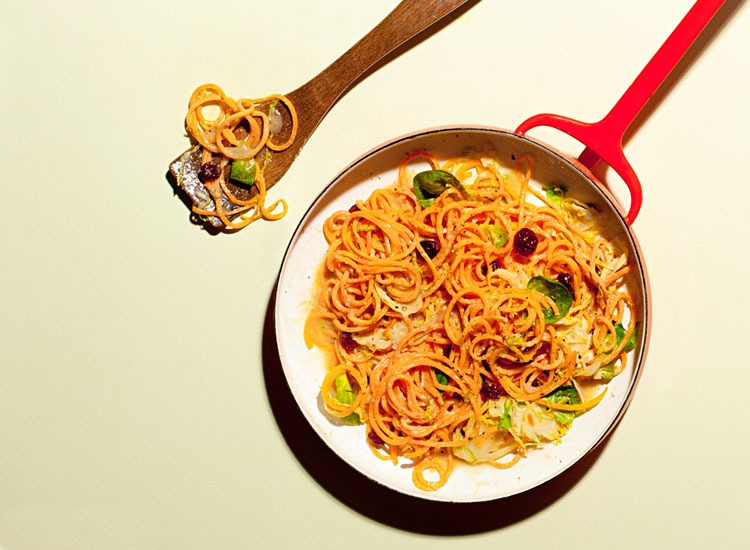
Here's the good news: No one is going to stop you from ordering seconds. So be like any good businessperson, and start small. Here's exactly how expensive it really is whenever you go for the "bargain":
7-ELEVEN—Gulp to Double Gulp Coca-Cola Classic: 37 cents extra buys 450 more calories. CINNABON—Minibon to Classic Cinnabon: 48 more cents buys 370 more calories.
MOVIE THEATER—Small to medium unbuttered popcorn: 71 additional cents buys you 500 more calories.
MCDONALD'S—Quarter Pounder with Cheese to Medium Quarter Pounder with Cheese Extra Value Meal: An additional $1.41 gets you 660 more calories.
The bottom line on all this? For just a hair more than 8 bucks, you can buy yourself an additional 3,620 calories. If you ate each of these once a week, and you were to switch to the smaller size each time—again, still all your favorite foods, just in a more reasonable size—you'd save about $417 a year. It's not going to buy you a new car, but it could put you on a plane to the Bahamas. But far more important than that is what it will mean to your waistline, because in saving that $417, you'll also save 188,240 calories in a year— enough to shave 54 pounds of flab off your body. (Hey, take the 400 bucks and buy some new pants!)
They Don't Want You to Ask What's in Their Food

Once upon a time, back when Ray Kroc was still pushing milk-shake machines, a hamburger and fries meant a wad of freshly ground chuck and a peeled, sliced, and fried potato. Now, these two iconic foods—like nearly everything we consume—has taken on a whole new meaning. Sadly, many of our favorite foods today (especially fast foods) weren't merely crafted in kitchens, they were also designed and perfected in labs. So before you mindlessly chew your way through another value meal, take these mini-mysteries into account. Sometimes the truth is tough to swallow.
They Apply the Pressure

What four words are more stressful to hear than "Can I help you?" (Besides, "Give me your money"?) The waitress or counter person comes to take your order, and suddenly you feel a world of pressure to make up your mind. It's easy to spout out the first thing you see— and maybe sabotage your weight loss hopes. But no longer. Now, you have the power to order quickly, smartly, and without hesitation, each and every time!
There's No Maple in the Syrup

Meals based on refined flour—all pancakes and waffles included—make for a nutritionally dismal start to the day. The fact that most diner "maple" syrup is nearly pure high-fructose corn syrup only adds insult to injury.
The Egg White Omelet Isn't Necessarily Healthier
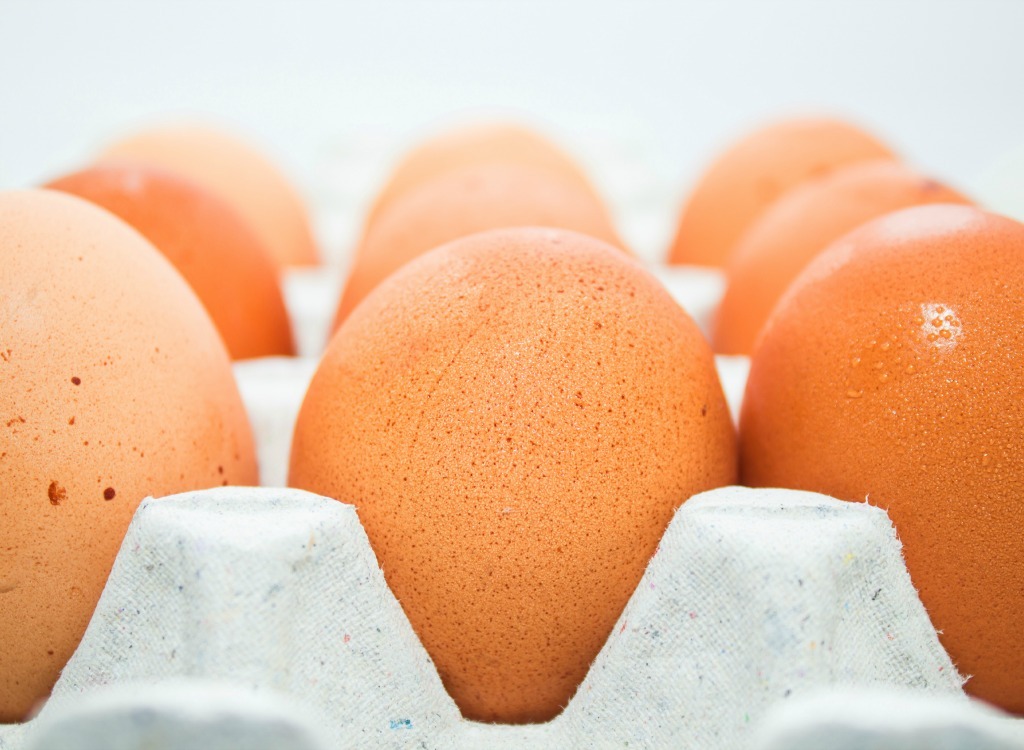
While egg whites have a reputation for being nutritional magic bullets, you should think twice before you nix the yolk. Besides carrying a good dose of healthy fat, yolks are one of the best sources of choline, a nutrient important to brain function that has been shown to help reduce inflammation and improve cardiovascular function. Worried about cholesterol? Don't be. The latest research shows that not only do eggs not raise our bad cholesterol, but that regular consumption may actually improve our overall cholesterol levels. And to really rev up your fat-burning potential, don't miss our essential 50 Ways to Lose 10 Pounds — Fast.
The Turkey Burger is For Turkeys
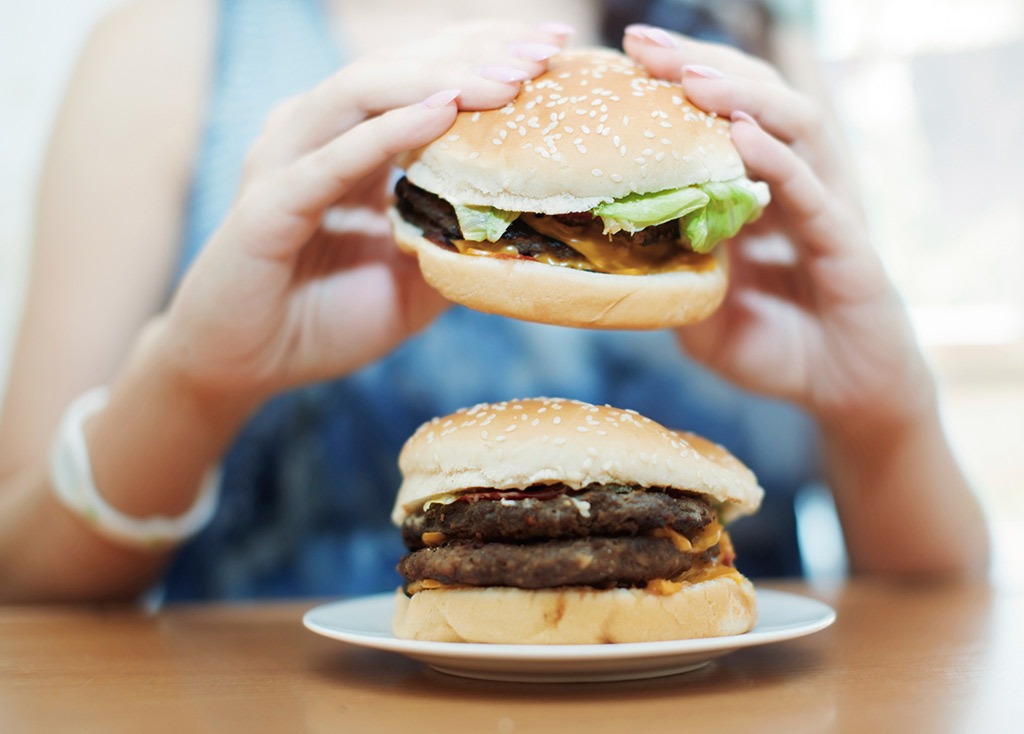
Not always the bona fide safe bet most people believe it to be. Ground turkey, like beef, is classified by the amount of fat found in the grind, and many burger joints, fearing a dry burger, opt for the 80 percent lean variety. This essentially makes it just as caloric as a beef burger.
The Nachos Are Worse Than Fries
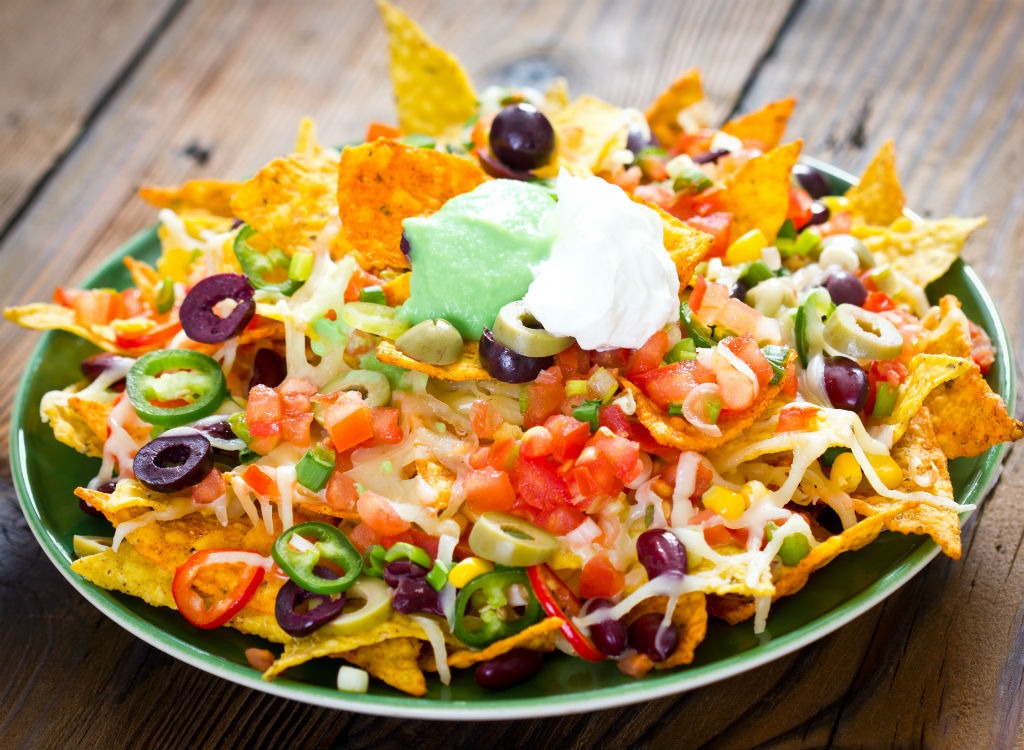
In fact, nachos are the Mexican equivalent of eating a giant plate of chili cheese fries for dinner. And as with the fries, at least half of the 1,000 or more calories come from fat—fat from the oil in the tortilla chips, sour cream, cheese, ground beef, and whatever they plop on top. Instead, to really rev up your fat-burning potential, don't miss our essential 50 Ways to Lose 10 Pounds — Fast.
